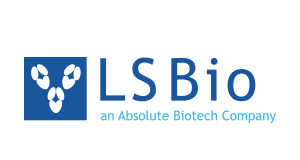Human LY96 / MD2 / MD-2 Protein (Recombinant His, C-Terminal)
Human LY96 / MD2 / MD-2 Protein (Recombinant His, C-Terminal)
SKU
LIFLS-G136244-10
Packaging Unit
10 µg
Manufacturer
LSBio
Availability:
loading...
Price is loading...
Description: Myeloid differentiation protein-2 (MD-2), also referred to as LY69, is an accessory glycoprotein secreted in hematopoietic, nervous, and reproductive tissues at various stages of development where it regulates innate immune responses to microbial pathogens through interaction with the extracellular do mains of TLR-2 and TLR-4. The association of MD-2 with the extracellular domain of TLR-4, which is constitutively expressed in cells of the immune system, localizes TLR-4 to the cell surface and forms the TLR-4/MD-2 receptor complex necessary for signal transduction in response to inflammatory signals. The activation of TLR-4/MD-2 begins with the detection of LPS by circulating LPS-Binding Protein (LBP), which in turn facilitates an association between LPS and CD14 for the formation of a CD14/LPS complex that transports and presents LPS to the TLR-4/MD-2 signaling complex, and culminates in the activation of downstream signaling events. MD-2’s possession of two dedicated functional domains allows for its simultaneous interaction with both TLR-4 and LPS,the major cell wall component of gram-negative bacteria that acts as the key ligand for TLR-4. Response to LPS is an intricate process that involves several co-stimulatory molecules, including myeloid differentiation factor 88 (MyD88), NF-?B, LBP, and CD14, in addition to TLR-4 and MD-2, and results in the secretion of proinflammatory cytokines and chemokines from the NF-?B, Wnt/ß-catenin, and mitogen-activated protein kinase (MAPK) pathways. MD-2 interacts with TLR-2 in a similar, albeit far weaker, manner to initiate immune response to cell wall components of both gram-negative and gram-positive bacteria. Once secreted, MD-2 can polymerize into a heterogenous collection of large, disulfide-linked oligomers that are each able to bind several TLR-4 molecules, resulting in large clusters localized to the cell surface prior to activation. HEK293 cell-derived Recombinant Human MD-2/LY96 is a disulfide-linked homodimer whose monomer contains 148 amino acid residues, including a C-terminal His tag, and has a calculated molecular weight of 17.2 kDa.
Presentation: Lyophilized from sterile filtered 10mM Sodium Phosphate, pH 7.5
Protein Tag: His, C-Terminal
Protein Type: Recombinant
Reconstitution Instructions: Centrifuge vial prior to opening. Do not vortex. Reconstitute with 20mM Citric Acid, pH 2.4 to 0.1-1.0 mg/ml.
Purification: Greater than 90% by SDS-PAGE gel and HPLC analyses.
Predicted Molecular Weight: 17.2 kDa
Synonyms: LY96, ESOP1, ESOP-1, Lymphocyte antigen 96, Ly-96, Protein MD-2, MD-2, MD2
Presentation: Lyophilized from sterile filtered 10mM Sodium Phosphate, pH 7.5
Protein Tag: His, C-Terminal
Protein Type: Recombinant
Reconstitution Instructions: Centrifuge vial prior to opening. Do not vortex. Reconstitute with 20mM Citric Acid, pH 2.4 to 0.1-1.0 mg/ml.
Purification: Greater than 90% by SDS-PAGE gel and HPLC analyses.
Predicted Molecular Weight: 17.2 kDa
Synonyms: LY96, ESOP1, ESOP-1, Lymphocyte antigen 96, Ly-96, Protein MD-2, MD-2, MD2
| SKU | LIFLS-G136244-10 |
|---|---|
| Manufacturer | LSBio |
| Manufacturer SKU | LS-G136244-10 |
| Package Unit | 10 µg |
| Quantity Unit | STK |
| Reactivity | Human |
| Human Gene ID | 23643 |
| Host | Human |
| Product information (PDF) |
|
| MSDS (PDF) |
|

 Deutsch
Deutsch







